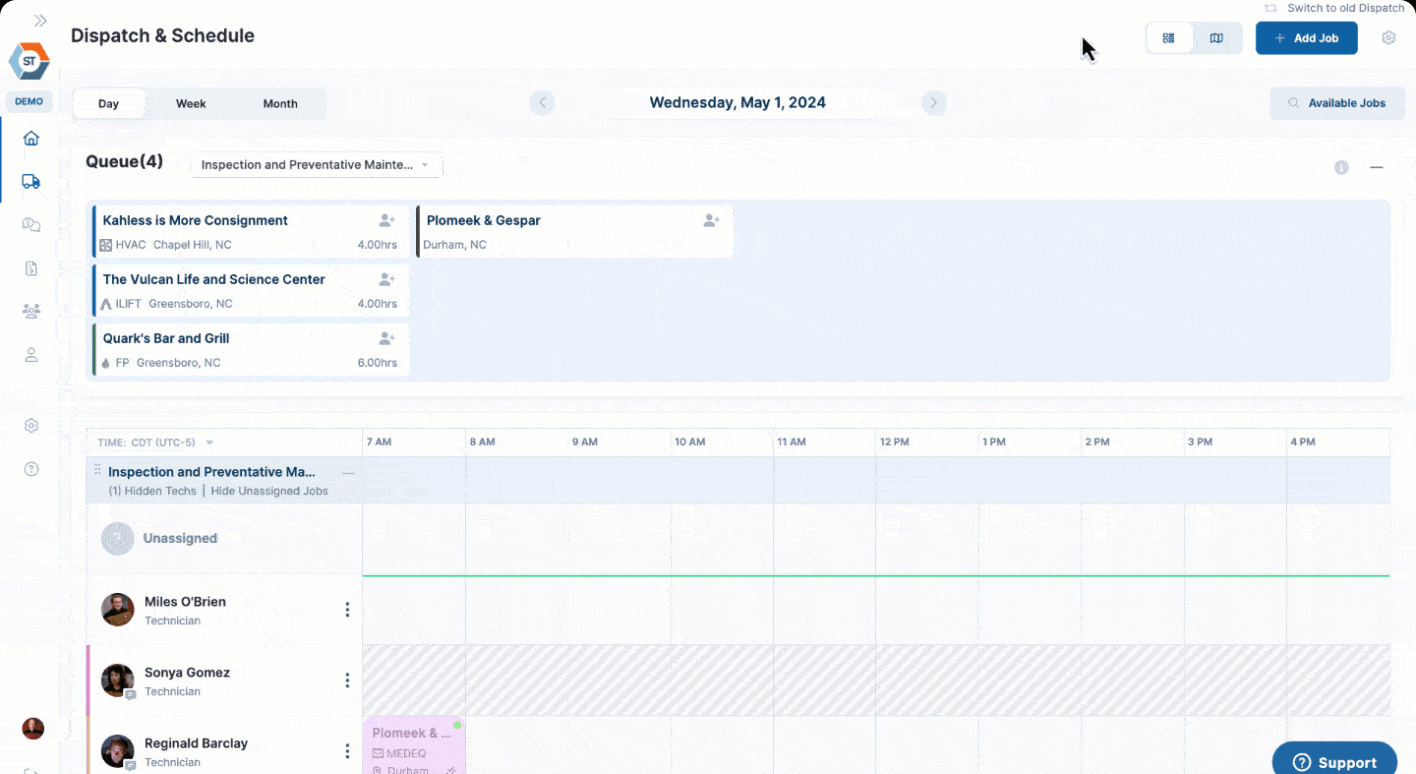As a commercial HVAC service provider, streamlining your operations is crucial for maintaining efficiency and delivering top-notch service to your clients. One powerful tool that can help you achieve these goals is commercial HVAC service agreement software. In this ultimate guide, we will explore the benefits, features, and implementation process of service agreement software specifically designed for commercial HVAC providers. By the end of this article, you will have a clear understanding of how service agreement software can transform your business and the practical steps to take for successful implementation.
Understanding Commercial HVAC Service Agreement Software
Service agreement software is a comprehensive solution designed to streamline and automate various aspects of your HVAC service operations. By leveraging technology, this software can help you efficiently manage service contracts, schedule and dispatch technicians, track maintenance schedules, communicate with customers, and streamline billing and payments. When choosing a service agreement software for your commercial HVAC business, it’s important to look for key features such as contract management, scheduling tools, customer communication capabilities, and billing integration.
Benefits of Service Agreement Software
Service agreement software can be a powerful tool for commercial HVAC providers, helping to streamline operations and improve overall efficiency. In this section, we will explore the key benefits of service agreement software, including streamlined scheduling, contract management, maintenance tracking, communication enhancement, and billing integration.
- Streamlining service scheduling and dispatching: With service agreement software, you can easily assign jobs to technicians based on their availability and expertise, eliminating scheduling conflicts and reducing downtime.
- Automating contract creation and management: Service agreement software allows you to create and store service contracts electronically, ensuring accurate and up-to-date documentation. It also enables automatic contract renewals and proactive notifications for contract expiration.
- Tracking and managing service history and maintenance schedules: By centralizing service history and maintenance schedules in one software, you can easily track and monitor past service calls, schedule preventative maintenance, and improve overall equipment performance.
- Improving communication with customers and technicians: Service agreement software provides a platform for seamless communication with customers and technicians. It allows customers to easily request service, receive updates, and provide feedback. Technicians can access job details, update work progress, and communicate with customers in real time.
- Enhancing billing and payment processes: Service agreement software automates billing by generating invoices based on service agreements and sending them to customers electronically. It streamlines payment collection by offering online payment options and tracking outstanding balances.
How to Choose the Right Commercial HVAC Service Agreement Software
When selecting a service agreement software for your commercial HVAC business, there are several considerations to keep in mind to ensure it aligns with your specific needs:
Identify key needs and pain points in current operations: Take stock of your current operations and identify areas that need improvement, such as scheduling conflicts, manual contract management, or inefficient billing processes. This will help you prioritize features when evaluating software options.
Evaluate software compatibility with existing systems and workflows: It’s important to choose a service agreement software that seamlessly integrates with your existing systems, such as customer relationship management (CRM) or accounting software. This ensures smooth data flow and avoids duplication of work.
Assess scalability and customization options: Consider your future business growth and evaluate if the software can scale accordingly. Look for software that allows customization to match your specific business processes and branding.
Consider pricing models and return on investment: Compare pricing models of different service agreement software providers. Some may have upfront costs or charge a monthly subscription fee. Evaluate the potential return on investment based on the time and cost savings the software can bring to your business.
Implementing Service Agreement Software in Your HVAC Business
Successful implementation of service agreement software requires careful planning and seamless integration into your existing workflows. Here are key steps to ensure a smooth transition:
Plan the implementation process: Create a detailed implementation plan that outlines specific tasks, timelines, and responsibilities. Involve key stakeholders, such as technicians, dispatchers, and the billing department, in the planning process to address their concerns and gain their buy-in.
Training and onboarding staff for seamless adoption: Provide comprehensive training to your staff on how to use the software effectively. Offer hands-on practice, video tutorials, or even consider bringing in software representatives for onsite training. Encourage open communication and support during the learning process.
Integrating the software into existing workflows and systems: Work closely with the software provider to integrate the service agreement software into your current systems, including CRM, accounting, and scheduling tools. Ensure data security and protection by setting up access controls and security protocols.
Ensuring data security and protection: Work with your IT team or software provider to ensure that the service agreement software complies with data protection regulations and has proper security measures in place to safeguard your business and customer data.
Best Practices for Maximizing the Benefits of Service Agreement Software
To maximize the benefits of service agreement software, there are several best practices that commercial HVAC providers can follow. First, it’s important to regularly review and optimize processes using the software. This involves continuously evaluating workflows and identifying areas for improvement. By leveraging the analytics and reporting capabilities of the software, you can identify trends, bottlenecks, and opportunities for optimization.
Another best practice is to leverage analytics and data insights provided by the software for improvement. The data generated by the software can provide valuable insights into customer preferences, service trends, and technician performance. This information can help you identify opportunities for upselling, offer personalized service recommendations, and allocate resources effectively.
Additionally, it’s crucial to encourage customer adoption through education and communication. Educate your customers about the benefits of service agreements and how the software enhances their experience. Provide clear instructions on how to request service, access online portals, and provide feedback. Regularly communicate with customers to keep them informed about upcoming maintenance visits or service promotions. By fostering customer engagement and understanding, you can increase their adoption and satisfaction with your service agreement software.
Commercial HVAC service agreement software is a game-changer for streamlining your operations, improving customer satisfaction, and growing your business. By automating contract management, optimizing scheduling, and improving communication, you can deliver top-notch service to your clients while achieving operational efficiency. Remember to carefully evaluate your options, plan for successful implementation, and continually optimize your processes to fully leverage the benefits of service agreement software. Invest in the right solution, and your commercial HVAC business will thrive in today’s competitive landscape.
—
Learn about ServiceTrade’s HVAC sales software and CRM here.

